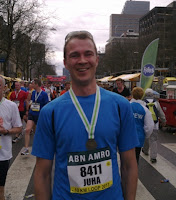 An overwhelming interest for the event of the launch of the new Erasmus + programme: that's what took the National Agencies with surprise after opening up the event registration online. Especially for HEIs registration was full within a day, so each university was kindly requested to draw up a shortlist of three candidates to attend and I was one of the lucky ones to represent my university.
An overwhelming interest for the event of the launch of the new Erasmus + programme: that's what took the National Agencies with surprise after opening up the event registration online. Especially for HEIs registration was full within a day, so each university was kindly requested to draw up a shortlist of three candidates to attend and I was one of the lucky ones to represent my university. A plenary, two in-depth informative sessions as well as an opportunity to meet others and network, plus a number of short interesting pitches: a formula that usually works well if you approach the right speakers, as was the case.
A plenary, two in-depth informative sessions as well as an opportunity to meet others and network, plus a number of short interesting pitches: a formula that usually works well if you approach the right speakers, as was the case.It was the penultimate speaker that made the most impression, Nils Roemen. He introduced a new concept #durftevragen, translated into Dare to Ask, which is about social value creation and getting things done in a way that leaves money out of the equation more often than not. The team is able to make things possible and manage to solve questions simply by way of their approach, which is also done on twitter. On their website he and his team put up wishlists to state the type of thing they need , and the response is usually quicker than you can imagine. Co-creation and sharing (knowledge, products, tips, approaches, networks etc.) are the core ingredients of the method they use. Definitely the most impressive and inspirational talk of the day. The final speaker was Jet Bussemaker of the ministry of Education, Culture and Science stating the importance of Erasmus + and the objectives and opportunities that were attached to this new EU programme. Appropriately, the event came to a festive end with minister Jet Bussemaker pushing the button to experience the fireworks of the launch and a glass of bubbly wine for all the participants.












![The Most Popular College Majors [infographic]](http://degreesearch.org/blog/wp-content/uploads/2012/12/most-popular-majors-2012.jpg)